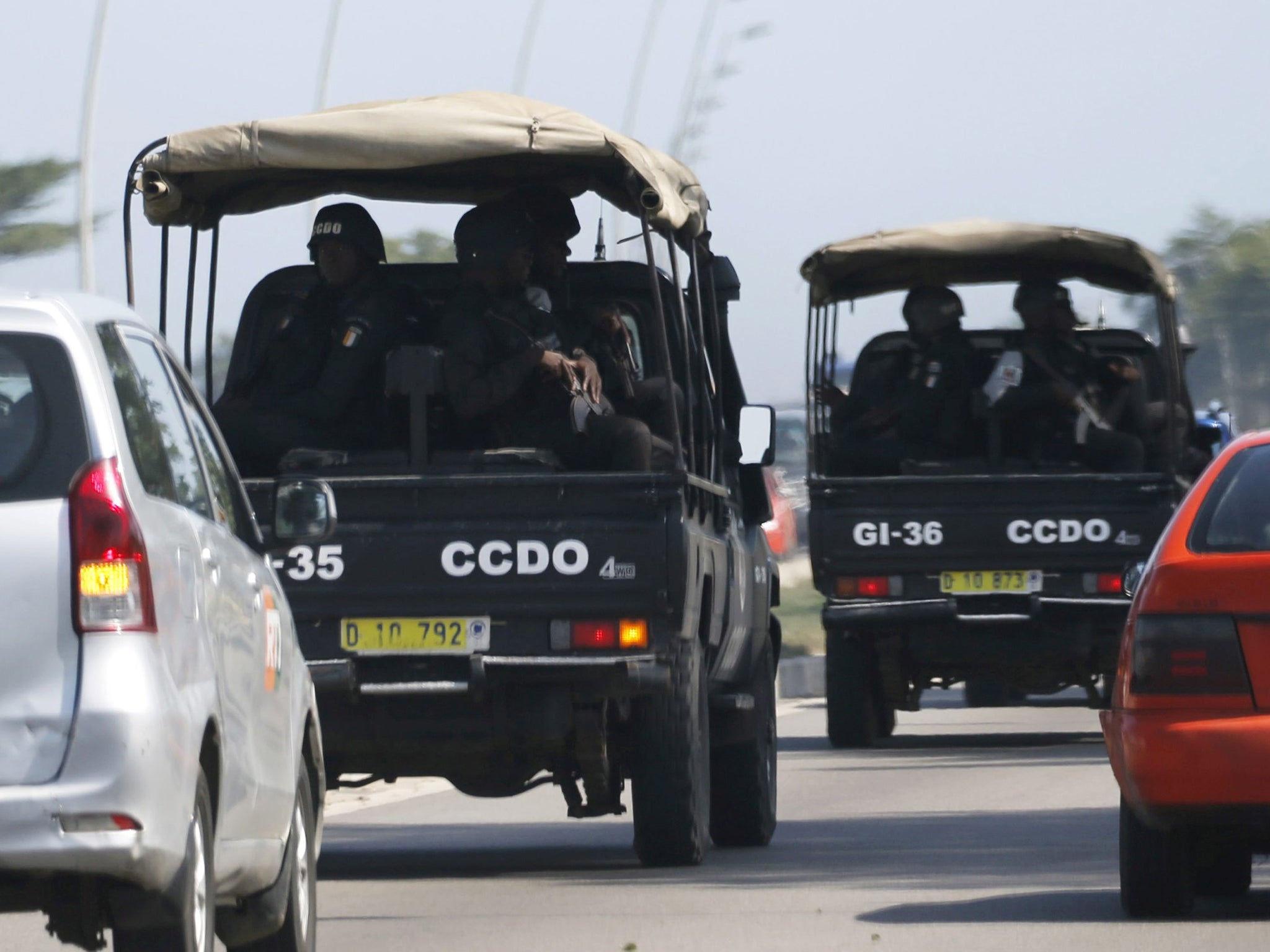Ivory Coast shooting: The African nation that became France's base for its war on Islamist terrorism
Last year, the country banned foreign imams and the construction of new mosques in some northern regions

The Ivory Coast shooting in which at least seven people are feared dead would be the first suspected terror attack to hit the West African nation since 2011.
The former French colony, also known by its Francophone name, Côte d’Ivoire, enjoyed a period of economic success after achieving independence in 1960. It remains the largest economy in French-speaking West Africa.
However, the coastal nation experienced a period of civil unrest following an economic crisis in the 1980s, and was riven by two religious wars from 2002-2007 and 2010-2011.
During the First Ivorian Civil War, the country was divided between a government-held Christian south and northern regions under the control of Muslim rebels.

Drivers of the conflict included a power vacuum created by a 33-year presidency, tensions over voting rights for immigrants and Ivoirian nationalism, and mass unemployment caused by a deterioration in trade relations with richer countries in Europe and the Global North.
Though much of the combat ended by 2004, tensions remained high and raids were commonplace. The national football team's success in qualifying for the 2006 World Cup is often said to have contributed to the peace process, with a peace agreement finally being signed in May 2007. Around 2,000 people died in the conflict, a majority of them civilians.
However, in March 2011 war broke out again, this time between forces loyal to the incumbent president Laurent Gbagbo and those backing Alassane Ouattara, who was internationally recognised as the preferred choice of the Ivoirian majority.
Violence had been ongoing since November of the previous year, as tensions flared around the election. Ggbago was arrested in April by French soliders. At least a million people were displaced by the conflict, and at least 3000 were killed. Again, many of the victims were civilians.
In 2014, France announced that its former colony would be its base for fighting Islamist terrorism in the Sahel region. A 3,000-strong taskforce of French soliders has been based there ever since.
In July 2015, foreign imams were banned from preaching in mosques in the north of the country, and the government also suspended the construction of new mosques around the northern city of Ouangolodougou.
The shooting is the first apparent terror attack to hit the country, which up till now had avoided attacks of the type experienced in nearby Cameroon, Chad, Mali, Niger, and Mali.
Ouattara was re-elected by a landslide in a relatively peaceful election in 2015.
Join our commenting forum
Join thought-provoking conversations, follow other Independent readers and see their replies
Comments
Bookmark popover
Removed from bookmarks